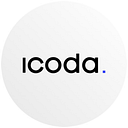Overview of the most interesting blockchain initiatives
Distributed ledger technology remains one of the hottest trends among financial, government, and commercial organizations worldwide.
Let’s consider the most interesting initiatives using the blockchain at the moment.
UEFA will distribute over a million tickets for Euro 2020 through the blockchain
Football fans will receive more than a million tickets purchased for the 51st match of the upcoming European Championship through the blockchain-based mobile application.
The Union of European Football Associations (UEFA) is confident that the new system will increase safety and convenience for fans by preventing counterfeiting and duplication of tickets.
Tickets can be downloaded to the app seven days before the match. It will be necessary to activate them in the immediate vicinity of the stadium via Bluetooth using a QR code.
Central Bank of South Korea will develop a blockchain system for the bond market
Global central banks are increasingly considering blockchain technology as a tool to increase the efficiency and transparency of interbank operations.
The Central Bank of South Korea is exploring the possibility of developing a new blockchain system for the circulation of bonds. According to plans, it will improve market accounting and expedite settlements.
Yonhap Infomax reports that the Bank of Korea inspired the new decision by the example of the World Bank, which previously, together with Commonwealth Bank of Australia, successfully sold bonds on the Ethereum public blockchain totaling $ 108 million.
The system will be developed for joint use by the relevant financial institutions, as well as the Central Bank and the Fair Trade Commission (FTC), the market regulator.
It is not known whether only government bonds will be integrated into the blockchain initiative or whether it will include corporate debt obligations.
Scottish startup to create blockchain solution for processing satellite data in the mining industry
The European Space Agency (ESA) is funding a project to create a blockchain-based service that will improve the transparency and accuracy of satellite data for mining companies, Oil & Gas Middle East reports.
The solution implements a startup Hypervine from Glasgow. According to the developers, mining companies have been compelled for months to verify information from numerous reports with data from satellite sources. A small creeping error can lead to serious, even catastrophic, consequences.
Using a distributed registry will eliminate the risk of an increase in changes in the data chain, which will prevent miscalculations.
ESA and Hypervine are confident that the blockchain system will not only reduce the cost of conducting geodetic work at new sites and potential risks for local teams, but will also provide better environmental protection by improving operational efficiency and reducing carbon emissions.
